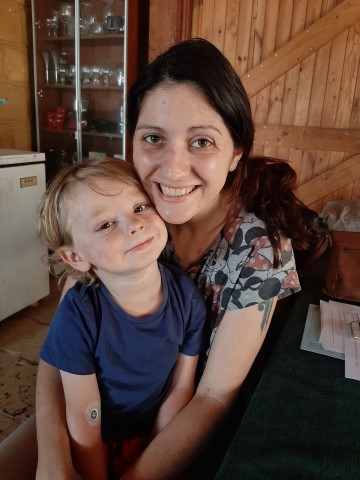Search

News & Events
Coronavirus and children with T1DOur co-director Professor Liz Davis spoke to JDRF Australia to answer COVID-19 and type 1 diabetes questions.

News & Events
T1D and COVID-19: what have we seen so far and what do we expect?We know many families have questions about the risk of COVID-19 to children with type 1 diabetes. To address these questions, Perth Children’s Hospital’s Diabetes Clinic has provided information and resources to help you navigate this tricky period.

News & Events
Aveni awarded a JDRF fellowshipCongratulations to Children’s Diabetes Centre’s Dr Aveni Haynes on being awarded a JDRF Postdoctoral Fellowship to inform type 1 diabetes prevention strategies by investigating early blood glucose abnormalities in at-risk children.

News & Events
New position to help roll out schools programA Clinical Nurse Specialist position within Perth Children’s Hospital’s Diabetes Service has been funded as part of the Federal Government’s new Type 1 Diabetes Management in School program.

News & Events
T2D now being diagnosed in children as young as sixChildren as young as six years old are being diagnosed with type 2 diabetes, according to Perth endocrinologists who are calling for early screening of at-risk groups.

News & Events
ENDIA milestoneAustralia’s biggest study into the causes of type 1 diabetes recently recruited its 1500th and final participant right here in WA.

News & Events
Self-efficacy groups 2020Perth Children’s Hospital’s Diabetes Service has released the dates for its self-efficacy groups for 2020.

News & Events
Would you like to test our new exercise app?Our research team have been working with young people with type 1 diabetes to design and develop an app that contains guidelines and advice for what to do when you are being physically active.

News & Events
World Diabetes DayIt may only have been a matter of months since Abby Carlon was diagnosed with type 1 diabetes but already the 10-year-old knows more than most about the condition. That’s because she’s always kept an eye out for her little sister Mia who was diagnosed with type 1 diabetes when she was three.

News & Events
James' brush with fameDid you catch the kids’ takeover Telethon segment on the weekend? If so, you may have spied James Fernihough hanging out with Ch 7 television personality Andrew Denton in the The Kids Discovery Centre.
